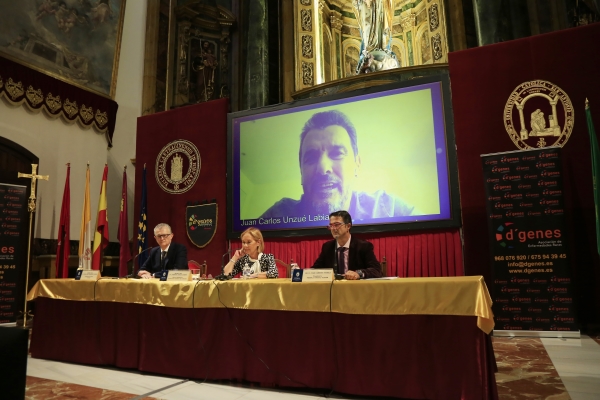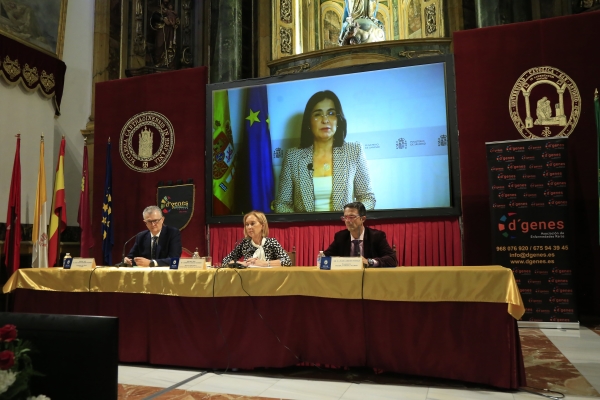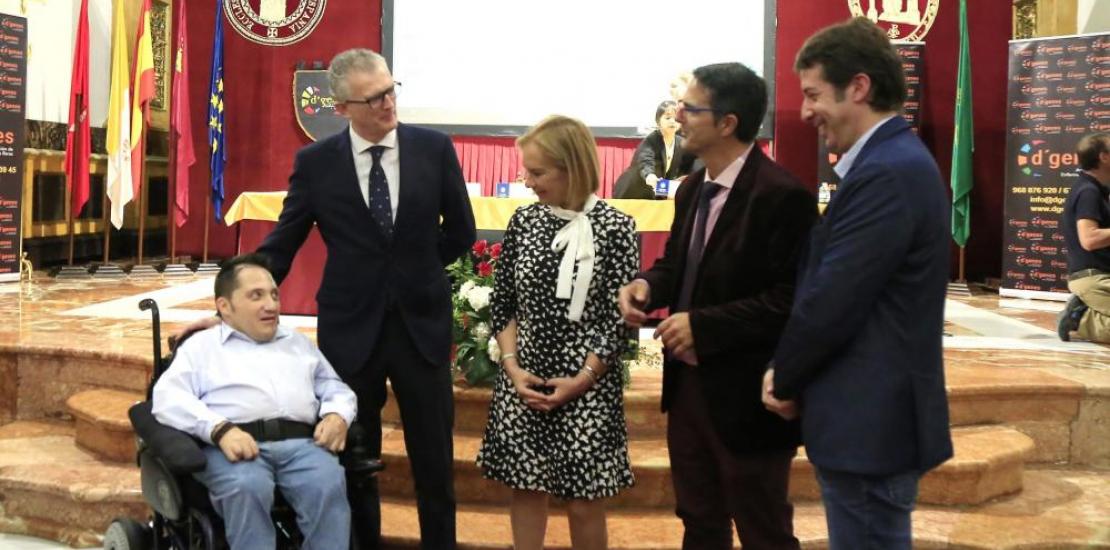Empathy and equality, the demands of rare disease patients
More than four hundred people attended the first day of the event organised by D'Genes and UCAM, which was streamed in sixteen countries
More than 100,000 people in the Region of Murcia, more than 3 million in
Spain and more than 300 million in the world suffer from a rare disease,
figures that illustrate the dimension of a problem that millions of families cope
with. For this reason, the XV International Conference on Rare Diseases
D'Genes - UCAM continues to grow in importance, providing a
multidisciplinary vision to face the challenges that arise in all areas:
research, healthcare, diagnostics, institutional involvement and associations.
The event, streamed to sixteen countries, was attended by more than 400
people on its first day, including those who were present at the Los Jerónimos
Monastery and those who followed the presentations online. All of them were
able to listen to the experiences of people who live their daily lives with the
disease, such as Juan Carlos Unzué, ex-football player and coach, who
suffers from ALS: ‘To all health professionals and researchers, I want to
convey my admiration. When you were very young, you decided to help
people in difficulty, and that shows an enormous empathy. That empathy is
what we patients need when we are in front of you’.

Óscar González, father of a young girl suffering from Ehlers-Danlos
syndrome, stressed the importance of strengthening the relationship between
those who live with a rare disease, as ‘associationism is the way in which
patients and families structure our efforts and our means, promoting
communication and the exchange of experiences. For example, a successful
treatment received by a patient in one hospital in our country can be quickly
shared and successfully replicated elsewhere, as was the case with our
daughter’. Juan Antonio Carrasco, who suffers from
spondyloepimetaphyseal dysplasia, explained some of the challenges he
faces, despite the difficulties caused by his illness and an accident that left him
quadriplegic: ‘I have a project to develop devices that convert manual
wheelchairs into electric ones. For people with limited resources. It's called
Avant Devices, and I'm developing it in collaboration with UCAM HiTech’.
The Minister of Health Speech
The inauguration of the congress was attended by Juan Carrión, President of
the D'Genes Association; Juan José Pedreño, Regional Minister of Health
of the Region of Murcia; and Josefina García, UCAM Rector, with Carolina
Darias, Minister of Health, speaking online. According to Carrión, this year's
theme is Equity and rights for people with rare diseases, because ‘the
approach to these diseases in our country also reflects situations of inequality.
We can see this in the access to diagnosis. For example, the Region of Murcia
includes forty rare diseases in the neonatal screening tests, but in others there
are only twelve, which are those established at state level. On the other hand,
there is treatment, as we need to achieve equity in the access to orphan drugs.
The Regional Minister of Health stressed the importance of further research:
‘above all in genetics, as 80% of these diseases are genetic in nature and
approximately 65% are discovered at paediatric age, so we want to focus on
this point in the Region of Murcia’. From the UCAM perspective, Josefina
García reminded the health students present at the congress that ‘you have to
be very aware that how you treat the patient is as important as technical
knowledge. You can face situations with hope and closeness, and that will
always be better than doing it coldly’.

One of the risks of suffering from a rare disease, beyond the health problems,
is not having the necessary support to cope with a difficult and complex
situation. In this regard, the Minister of Health commented that ‘many of the
people suffering from one of the more than seven thousand rare diseases
registered by the WHO are in a precarious state of social exclusion; most of
them need improvements in their situation, both patients as well as their
families’.




